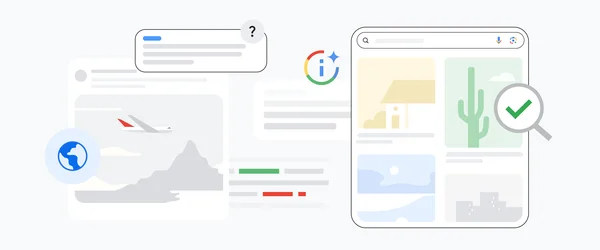Up here in Canada the ol' Facebook is a lot quieter since 'news' sites can't post, but I still get a lot of people posting the weirdest things trying to claim it's recent or valid.
Snopes was my 'go to' and it is blocked.
Whenever anybody would share something I liked to look it up. I'd first Google the topic, or look on Snopes and share that article. Sometimes I do the 'image search' on Google to see if it's been more places.
Google has the same idea - people should be able to determine information about what gets posted or seen on the web to help make sense of it all (and hopefully stop dissemination of garbage).
Today they launched 2 new tools to help: About this Image & Fact Check Explorer
Essentially the 'About this Image' is going to give you context on the image. Where was it last seen, how might it have been described (differently) elsewhere and then some metadata (when available).
Fact Check Explorer will search the web to see other hits about that image or topic.
Today, Google announced even more Search features designed to combat misinformation, just in time for Media Literacy Week.
The new features build upon Google’s existing measures to help users find high-quality information and make sense of what they’re seeing online. These updates include:
- About this image: Earlier this year, we announced a new feature called About this image, and today, this feature is rolling out to English language users globally in Google Search. About this image gives people an easy way to check the credibility and context of images they see online.
- Fact Check Explorer: This tool gives journalists and fact checkers a deeper way to learn about an image or topic. A global beta version which lets users upload or copy the URL of any image into the Fact Check Explorer and see if it has been featured anywhere in an existing fact check is now available.
This latest announcement from Google signifies its continued dedication to building the tools and resources to help users feel more confident about navigating what they’re seeing online. Learn more here.


Comments
Post a Comment